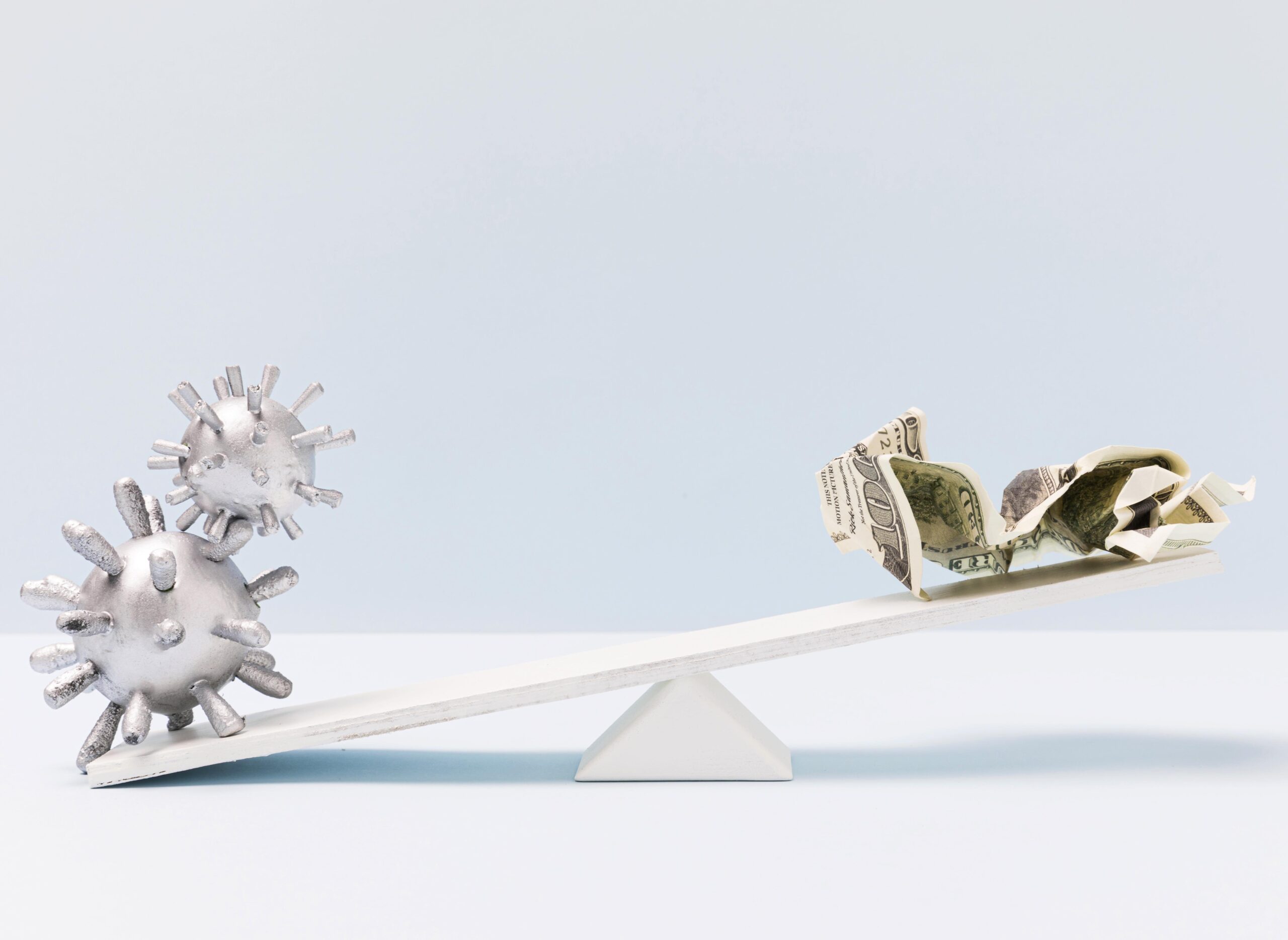The economic phenomenon of inflation exists as a dual threat. The value of money decreases gradually through time which reduces the burden of fixed-rate debts. The other side of inflation brings higher interest rates and increasing expenses which create challenges for debt repayment.
When inflation occurs should you speed up your debt payments or allow time to reduce your debt burden? The article explores inflation mechanics and debt repayment effects and presents effective loan management approaches for times of high inflation.
What Is Inflation and Why Does It Affect Debt?
The general price level of goods and services increases over time during inflation which reduces the purchasing power of each dollar. The inflation period produces two essential impacts on borrowers:
- Fixed-rate loans lose real value over time. The money you use to pay back your debt becomes less valuable because of inflation.
- Interest rates and living costs rise. The value of variable-rate loans such as credit cards tends to increase when inflation is high which results in higher borrowing costs.
How Inflation Can Work in Your Favor
Fixed-Rate Debt Shrinks in Real Value
The real burden of your monthly payments decreases when you have a fixed-rate mortgage or car loan or personal loan during periods of inflation.
Example: Your monthly mortgage payment of $500 in 2020 becomes less burdensome in 2025 because your salary and prices have increased.
“Cheaper Dollars” Repay the Loan
The purchasing power of money decreases when inflation occurs. The real value of dollars decreases during the 3-year period which makes paying off $10,000 more manageable.
Asset Appreciation
The value of assets like houses increases with inflation because your loan amount stays constant which benefits you financially.
When Inflation Hurts Your Debt
Variable-Rate Loans Get Expensive
The interest rates of credit cards HELOCs and adjustable-rate mortgages tend to rise during periods of inflation. The resulting monthly payments become extremely high.
Your Living Costs Increase
The rising costs of food, gas, rent and utilities reduce the amount of money available for debt repayment.
High-Interest Debt Cancels Out Inflation Benefits
A 7% inflation rate does not benefit you when your credit card interest rate reaches 20%. In this situation, delaying payments will only increase your expenses.
Cost Comparison: Inflation Impact on Fixed Debt
The following example demonstrates how inflation affects the actual value of debt payments throughout a three-year period.
| Year | Nominal Payment | Value Adjusted for 6% Inflation |
|---|---|---|
| Year 1 | $300 | $300 |
| Year 2 | $300 | $283 |
| Year 3 | $300 | $267 |
The total repayment of $10,800 spread across three years becomes equivalent to $9,900 in today’s dollars because of inflation which provides an unanticipated benefit for fixed-rate debt.
Case Study: Pay Off Debt or Invest During Inflation?
You possess $10,000 in additional funds while carrying a 4% fixed-rate loan and experiencing 7% inflation. You should decide between using the money to pay off your loan or to make investments.
| Option | Action | Outcome After 1 Year |
|---|---|---|
| Pay Off Loan | Apply full $10,000 to debt | Save $400 (interest avoided) |
| Invest at 7% return | Invest while paying loan | Earn $700 (investment gain) |
Analysis:
The investment return of 7% exceeds the loan interest of 4% so investing becomes more profitable during periods of high inflation.
The debt repayment would always be more profitable than investing when the credit card interest rate reaches 20%.
Real Data Insight (2022)
The United States experienced its highest inflation rate since 1981 when it reached 9.1% in 2022.
- Homeowners who had 30-year fixed mortgages at 3% experienced a reduction in the actual cost of their loans.
- The average credit card interest rate surged to 19.9% which led to a 15% annual increase in household credit card debt.
High-interest variable debt exceeds any potential inflation advantage that consumers might gain.
When Should You Delay Debt Payments?
The following conditions must be met for delaying payments to be reasonable:
- Low, Fixed-Rate Loans: A 3% car loan remains non-urgent when inflation reaches 6%.
- Higher Investment Opportunities: Investing at a rate above your loan interest rate makes it more beneficial than paying the loan.
- Stable Income Growth: Your debt burden automatically decreases when your salary grows at the same rate as inflation.
When You Should Never Delay
- High-Interest Credit Cards or Payday Loans. Their compounding interest grows faster than any inflation advantage.
- Variable Interest Debt. When inflation occurs central banks tend to increase interest rates which results in higher monthly payments. Lack of Discipline.
- Lack of Discipline. When you miss payments the desire to spend more money leads you to accumulate more debt.
Strategies to Manage Debt During Inflation

- Refinance or Lock in Fixed Rates. People should convert their variable-rate loans to fixed-rate loans before interest rates increase any higher.
- High-Interest Debt Should Be Your Top Priority. The interest rates on credit cards exceed inflation rates so you should focus on paying them off first.
- Balance Debt and Investments. People with low-interest loans should put their excess funds into inflation-protected investments such as ETFs and index funds.
- Create an Inflation-Proof Budget. People should monitor their expenses while reducing nonessential spending to generate additional cash.
Psychological Factors: The Illusion of “Cheap Debt”
Some borrowers mistakenly believe that inflation will automatically solve their debt problems but this approach can be risky.
- The real cost of debt may decrease due to inflation but interest payments will continue to accumulate.
- When you completely stop making additional payments your debt repayment period will likely increase by several years.
FAQ
1. Should you postpone debt repayment during periods of inflation?
The strategy makes sense for fixed loans with low interest rates when inflation rates exceed the interest rates.
2. What impact does inflation have on credit cards?
The interest rates on credit cards adjust according to inflationary trends.
3. Does inflation create opportunities to reduce my mortgage debt?
The fixed-rate mortgage type receives the most advantage from inflationary conditions.
4. Should I direct my money toward investments instead of debt repayment?
Investing becomes more beneficial than debt repayment when your investment returns exceed loan interest rates but you should always prioritize paying off high-interest debt first.
5. What stands as the most dangerous error people make during inflation?
Using minimum payments for high-interest loans proves to be the worst mistake because these payments expand at a faster rate than inflation reduces them.
